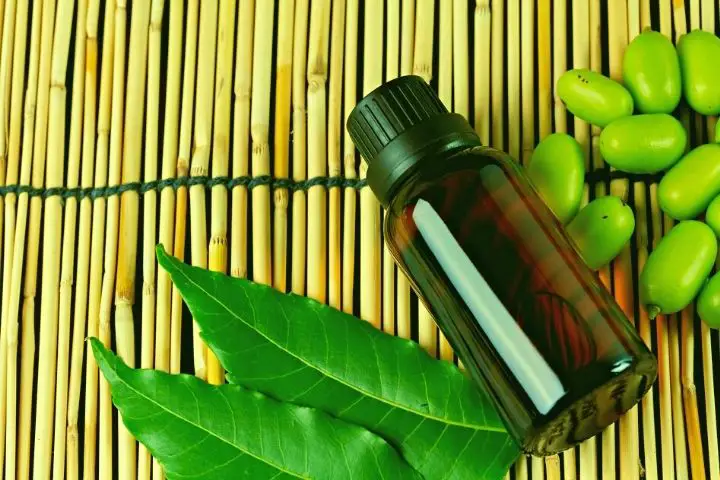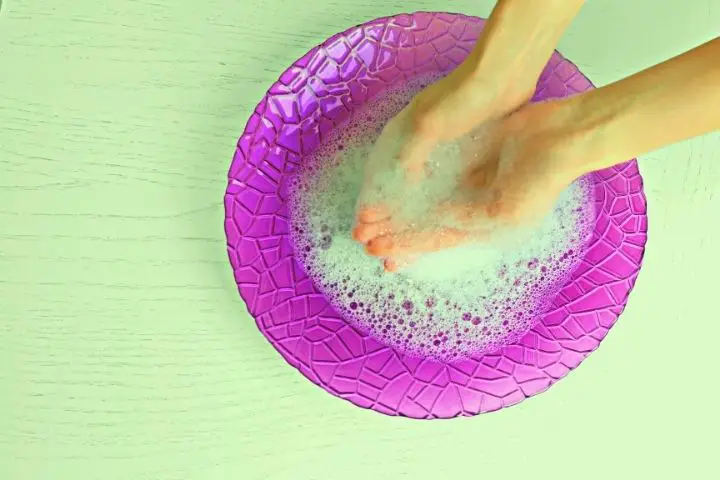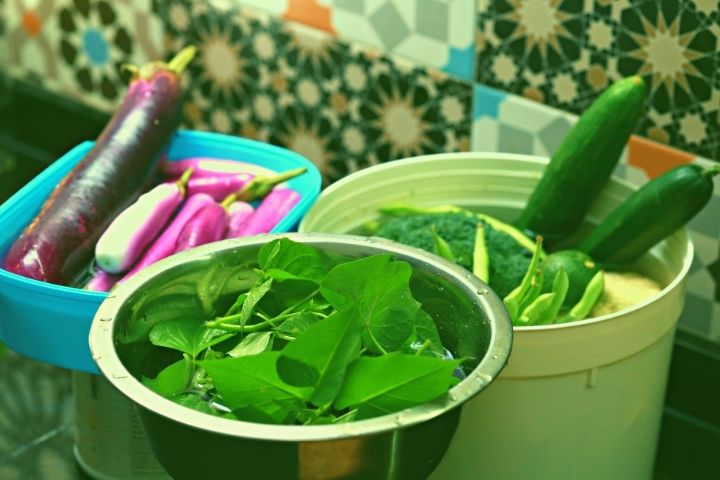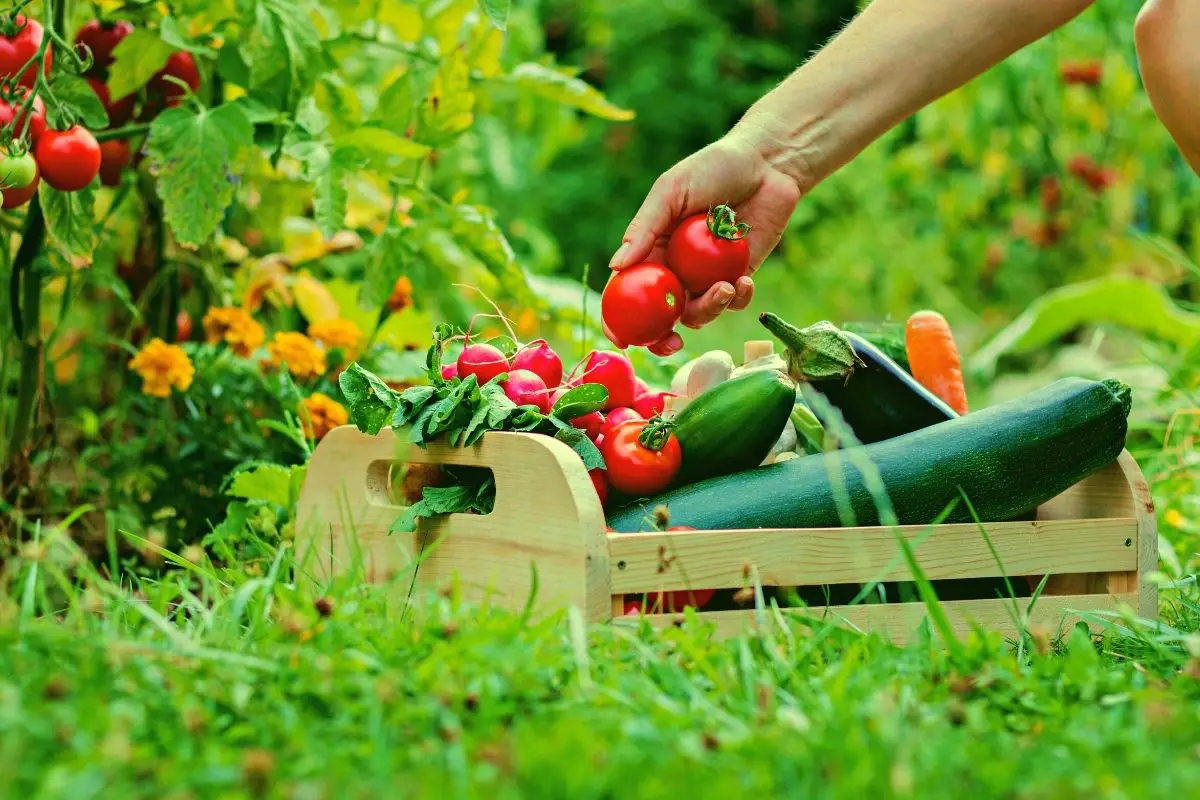Is Neem Oil Edible? Let’s Be Safe Before Eating Homegrown Veggies!
Picking some veggies from your very own garden is an amazing feeling. But there’s a reasonable concern if you just sprayed neem oil on them. Is neem oil edible and safe to eat?
While neem oil itself is not edible, you can eat your plants if they have been sprayed with neem oil IF you follow a few simple steps. You should wait for 5 to 7 days after they’ve been sprayed with neem oil before picking them to eat. They can be picked sooner, but you must wash them thoroughly.
Is Neem Oil Safe for Herbs and Vegetables?
Yes!
I am a big fan of easy to grow indoor plants and neem oil comes in handy when pests such as spider mites feed on green foliage. On the other hand, I don’t want to kill those creepy crawlies and end up with another problem: toxic stuff on my plants and in the air!
The good news is neem oil is completely natural and organic, extracted straight from the neem tree, it has no negative effects on other plants and herbs. You can use a safe combination of neem oil spray on your vegetable garden, fruits, and indoor plants with no health concerns.

Neem oil is safe to spray on most edible herbs, however, certain herbs such as cilantro and thyme are too tender and may not handle the oil. Before using neem oil on your whole plant, make sure to test a small area first to see if they can tolerate the neem.
Even though neem oil spray spells bad news for pests, it will not harm the birds, bees, or pretty butterflies who decide to hang around your garden. This means that neem is safe for your plants that rely on pollination.
Heavy application of neem oil spray on your plants can actually damage your plants and decrease the fruits of your labor (literally). It can also burn the foliage of young plants if not used correctly.
Neem oil should not be used on young seedlings if you just transferred your plants and tender herbs as the active ingredients in the spray can cause them to wither or even die. If your edible plant or herbs are hairy or fuzzy, then do not use neem oil on them.
You shouldn’t spray them with neem oil spray if you plan to eat your herbs and fruits or cook your potatoes in a lovely curry the next day. This is because neem oil can be dangerous to our health if ingested.
Wash all your edible plants and herbs before eating them in any case.
Is Neem Oil Edible for Humans?

Unfortunately, you may be asking for trouble if you take a swig of neem oil from the bottle! Apart from the health risks, drinking oil just seems horrible.
Neem oil applied to the skin is pretty safe, with many studies claiming that there were no negative effects. Some stated that there were some allergic reactions. While neem oil is fairly safe to go on our skin, it shouldn’t be going into our tummies.
If you ingest neem oil, you may have neem oil poisoning. This is especially evident in children and the elderly. This is because cold-pressed neem oil has high amounts of azadirachtin, which causes vomiting, seizures, and liver problems.
While chewing neem leaves have many gut benefits, this doesn’t apply to neem oil!
Should I Wash My Neem-Coated Plants Before Eating?
Neem oil can last for up to 4 days when mixed with water and sprayed on plants. It can stay in the soil for about 22 days before breaking down. Your plants should only be washed if you want to eat them the very next day.
Otherwise, plant experts advise you to wait for about 4 to 7 days before harvesting your vegetables.
No matter the time, it’s best just to wash them anyway. Here are the steps to doing so.
Step 1- Have a Bowl of Soapy Water

Soapy water? For something I eat?
Yes, just trust me on this one!
When it comes to tomatoes, peppers, leafy greens, and other garden plants, you must wash them with some soapy water. Add a teaspoon of mild dishwashing liquid to a large bowl and fill with water.
Add your veggies to soak for about 1 to 2 minutes. This will kill any hidden insects.
Step 2- Scrub Gently
After soaking, scrub your veggies gently with a clean, unused sponge. Use the softer side that will not damage your food.
Step 3- Rinse
Rinse them gently but make sure you get all the soap washed out. Have a colander in the sink so you can put each vegetable there. Give all of them a final rinse before proceeding to the next step.
Step 4- Soak Your Vegetables in Cold Water
This step is optional, but if your veggies like celery and leafy greens seem a bit soggy, soak them in some water with ice. This will allow them to become crisp and tasty. Let them sit for about half an hour.

Step 5- Use Immediately
It’s best to cut your edibles close to mealtime so it’s super fresh when cooking. When you’re done washing, you can go ahead and start prepping them for cooking. Yum yum!
If you cut extra veggies, you can lay them on a clean dishtowel on the counter and let them air dry for an hour. You can store them in a Ziploc bag or container if you plan on eating them in about 2 days. You can add a paper towel in there to absorb extra moisture.
If you want to store them longer, you can put them in freezer bags or vacuum-seal them. You can chop/dice them up for easier cooking next time!
Frequently Asked Questions
Does neem oil change the taste of my vegetables?
Generally, neem oil has an unpleasant odor and smell, usually compared to a mixture of garlic and peanut butter. You may have a slight taste of this in some veggies and fruits, which may take a couple of weeks before it goes away.
This is why you should apply neem oil several weeks before harvest and always wash your veggies before consumption. Don’t use it up to the day of harvest, or if you have to, only use it in affected areas.
How quickly does neem oil work on my plants?
Neem oil is a slow-acting pesticide, so it will not give you instant results when you spray it on your plants. It’s also not going to work on contact, as the bugs will have to eat your neem-coated plant for it to work. So, don’t stress and let it do its magic!
If you use neem oil for fungal problems, it will work in one to two days. To control pests, you’d see results in two to four days.






